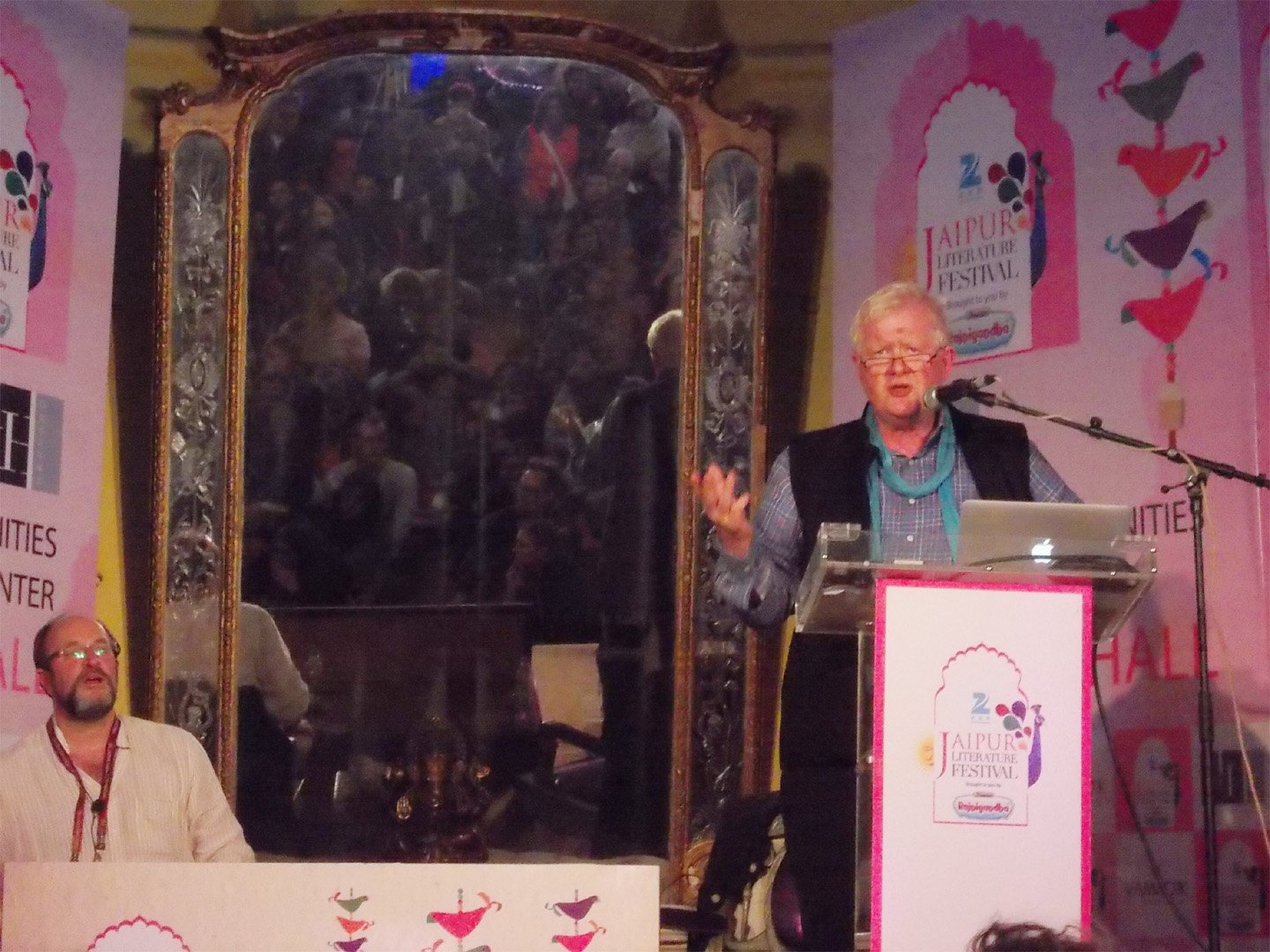Literature
WWII's most audacious act: Kidnap of a German general

It seems like an Alistair
Maclean novel - an enemy general is kidnapped from near his
headquarters, spirited through nearly two dozen checkpoints, kept hidden
from search for nearly two weeks and is successfully taken out of the
territory. But it really happened in World War II, and two junior,
amateur British officers - who had conceived the plan in a Cairo
nightclub - carried off the German commander of the Greek island of
Crete with support of the partisans.
It was an audacious plan
which has never been seen before in warfare - generals have been
captured but this was the first time one had been kidnapped, said
British author Rick Stroud who brings the incident to life in all its
nearly unbelievable details in "Kidnap in Crete: The True Story of the
Abduction of a Nazi General".
Speaking about the incident at a
session of the Jaipur Literature Festival 2015, Stroud said the two men
behind it were 29-year-old Major Patrick Leigh Fermor, known for walking
across Europe from Holland to Turkey in 1933-34 (writing about his
experiences four decades later) and 21-year-old Captain William Stanley
Moss, both working in the Special Operations Executive (SOE) who devised
the plan towards the end of 1943.
Leigh Fermor parachuted into
Crete in February 1944 but the others - Moss and two Cretan SOE
operatives - couldn't due to the cloud cover and only arrived on the
island two months later - in April 1944 - being dropped off by the navy.
"They had brought half a tonne of equipment including weapons, medicines and drugs - and suicide pills," said Stroud.
Though
the German commander they wanted to capture - Gen. Friedrich-Wilhelm
Muller, known as the "Butcher of Crete" for his brutal policies, had
been replaced in February by Gen. Heinrich Kreipe, who had been
transferred from the Eastern Front to a "cushy job" in occupied Crete,
the duo voted to go ahead, said Stroud.
"Little did Gen. Kriepe
know that when he took up his new charge that he was walking in a trap
and all his movements were being closely scrutinised," he said.
Leigh
Fermor during his time on the island had been busy carrying out
reconnaissance - while dressed as a Cretan shepherd, said Stroud, adding
he weighed a plan to snatch the German general from his residence but
dismissed as the place was too guarded and it was finally decided to
snatch him when he was travelling.
The plan was carried out on
the night of April 26, 1944 as Gen. Kreipe was returning home after
playing bridge with his subordinate officers - exactly at the point
which he had gauged as vulnerable for an attack.
"He was
delighted to see two German military policemen at that point. They
stopped the car and as he was reaching for his papers, one of them
(Leigh Fermor) yanked open the door, and pointed a pistol at him while
the other (Moss) coshed the driver unconscious. Gen. Kriepe violently
resisted capture and punched Leigh-Fermor in the face," said Stroud.
Moss
then drove the car while Leigh Fermor held the general unconscious and
they successfully passed through 22 checkpoints with the latter calling
out the "general's car" in German as they neared, he added.
They
abandoned the car with a message - intended to save Cretans from
reprisals - that the kidnapping had been carried out by British officers
and that "they were sad to abandon such a magnificent car", said
Stroud.
The team successfully evaded their pursuers till they
were taken off by a boat on May 14 - not without drama, when Moss could
not make the correct Morse code identification signal by torchlight.
Gen. Kriepe was taken to Britain and interrogated but nothing worthwhile
was obtained from him while the Germans carried out reprisals and razed
a village.
"Though a strategic and tactical failure, the
operation did have immense psychological impact as the news spread
around the world - even in German occupied territory as was a terrific
morale-booster," said Stroud.
Though both Leigh Fermor and Moss
have written personal accounts, Stroud says his is the most
comprehensive as it includes the Cretan accounts.
"In fact, when
Moss's 'Ill Met my Moonlight' was published, Kriepe - who had a bad
relation with him - successfully sued him for defamation and prevented
its German publication as well as release of the film based on it," he
said.
(Vikas Datta can be contacted at vikas.d@ians.in)




































